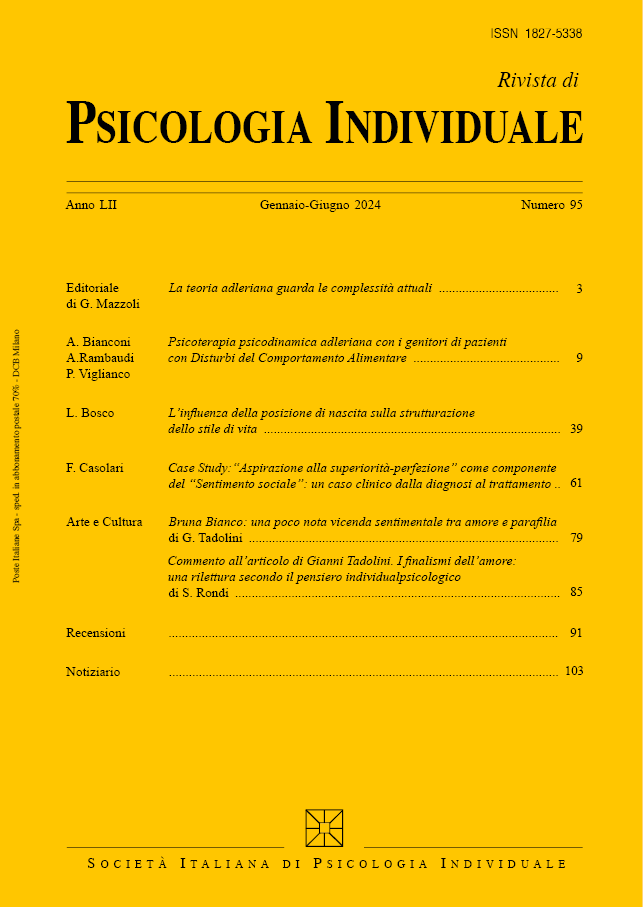Analysis of parallel finalistic lines in pre-adolescent psychotherapy
Keywords:
psychodiagnosis, psychotherapy, pre-adolescents, lifestyle, projective tests, play, change, social feelings, compensation, fantasies, pre-neurosis, family, society, feelings of inferiority, failure, laziness, phobias, aggression, discouragement, absenteeism, anxiety, creativity, encouragementAbstract
The pre-adolescent phase is characterized by states of disharmony in the relationship with the environment, manifested through the development of neuroses and low self-esteem, a deep-rooted feeling of inferiority and fear of failure, compensated by laziness and abstentionism or phobic and aggressive behavior. The “change syndrome,” often associated with the transition from elementary to middle school, tests the balance between social feelings and the will to power in the search for adaptation, revealing deeper problems that are often rooted in early educational mistakes. The child's distress must be contextualized not only within the family, but also within the wider society to which they belong, always considering parents as collaborators who may harbor ambivalence in their request for help, sometimes feared as a loss of role. For pre-adolescents, the possibility of expressing their lifestyle and ultimate goals through the mediation of projective symbols, including the invention of fantasy stories as an intermediate tool between play and classic conversation, seems to represent a useful encouragement to those creative abilities that are often experienced in a conflictual way






